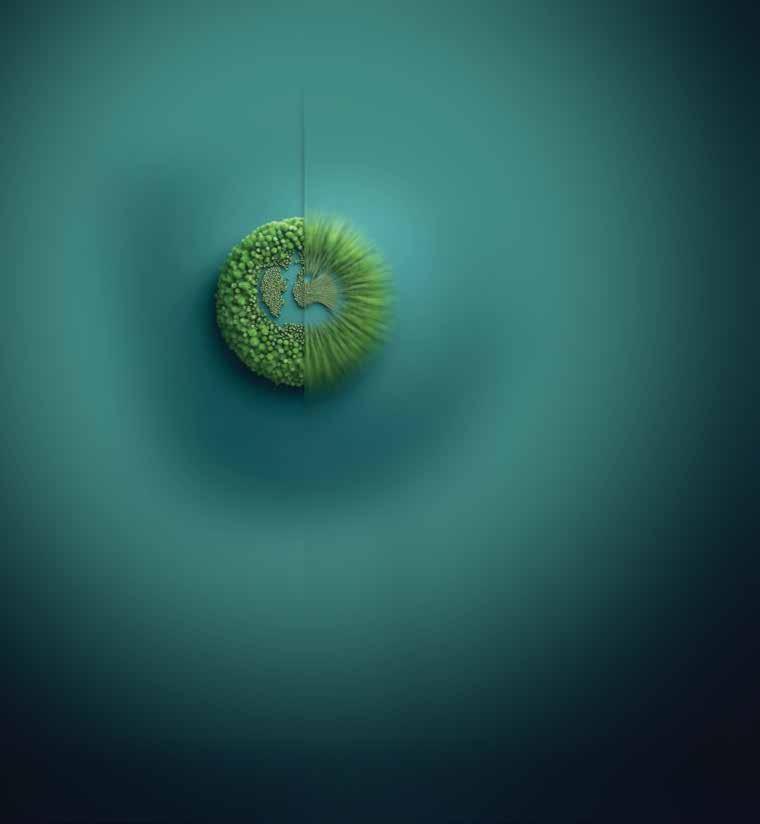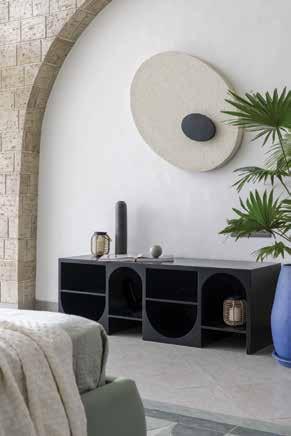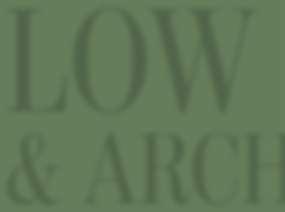
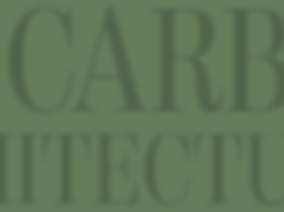
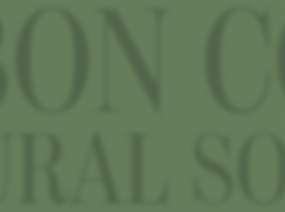
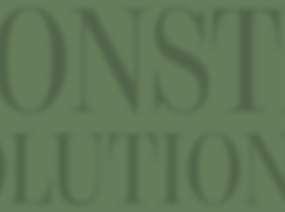
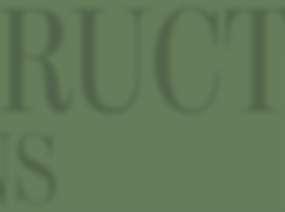






Desert wisdom returns to the UAE and Middle East as old ideas inspire edifices that are both modern and sustainable
Architects in the UAE and the wider Middle East are looking backward to move forward in the race to reduce carbon footprints Long before air conditioners cooled interiors and glass towers dotted the skyline, the region’s builders crafted homes and public spaces that responded intuitively to harsh climates
Now, these time-tested architectural traditions, wind towers, thick mud-brick walls, shaded courtyards are experiencing a renaissance, reinterpreted through the lens of 21st-century sustainability
Across the Emirates, a new wave of design thinking is tapping into this desert wisdom to meet low-carbon goals while remaining rooted in local identity Instead of relying solely on imported technologies or global templates, developers and architects are turning to regional heritage as a rich design resource that naturally enhances thermal comfort and reduces energy use
Rediscovering the barjeel
One of the most striking examples of this is the resurgence of the barjeel, or
wind tower Once a defining feature of traditional Gulf homes, these towers captured prevailing breezes and funneled them into interior spaces, acting as passive air conditioning With renewed relevance in a world grappling with rising temperatures and energy costs, modern iterations of the barjeel are now being integrated into government buildings, cultural centres, and residential com-
plexes, not as ornamental tributes to the past, but as fully functional, sustainable design features
In newer developments across Abu Dhabi and Sharjah, smart reinterpretations of the barjeel have emerged, often paired with solar chimneys and thermal sensors to boost airflow These hybrid solutions demonstrate how blending tradition with technology can offer both
cultural depth and climate performance
Another regional staple making a comeback is the use of thick adobe or mudbrick walls, renowned for their thermal mass These walls absorb heat during the day and slowly release it at night, naturally regulating indoor temperatures In hot desert environments, this reduces dependence on artificial cooling systems and significantly cuts down energy consumption
Newer green buildings are beginning to adopt similar principles using modern equivalents such as compressed earth blocks or low-carbon concrete These materials replicate the insulating properties of traditional adobe while conforming to current structural and safety standards

Paired with natural ventilation strategies, they deliver high performance with minimal environmental impact

Dedicated to transform waste into sustainable building materials
As the demand for low-carbon, locally adapted building materials grows across the region ARDH Collective is leading the charge with design-led material innovation Founded by a team of designers and architects, including Alhaan Ahmed, Alyina Ahmed and Maximo Tettamanzi, the company is dedicated to transforming waste and natural resources into innovative, sustainable building materials
ARDH Collectives flagship innovation Dunecrete (formerly known as Ramel) is a low-carbon concrete alternative made using locally sourced desert sand and reducing cement by 50 per cent
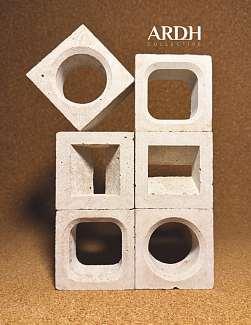

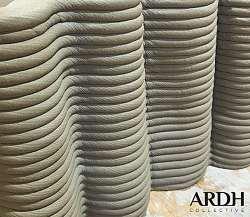
By eliminating the need for imported riverbed sand, which is both environmentally damaging and increasingly scarce, Dunecrete offers a regionally relevant solution that significantly lowers the carbon footprint of construction Engineered for versatility and performing at a C25 compressive strength its ideal for producing a range of architectural elements without compromising on performance or design
ARDH Collective offers bespoke Dunecrete 3D-printed architectural elements, with large-format printing capabilities up to 1m x 1m x 1 5m DuneBlock their custom-designed breeze blocks are available in 5 unique designs and 3 versatile
sizes, perfect for adding both function and flair to any architectural project They also provide ready-mix bags, making it easier to complete your build at your convenience and are launching pavers soon, expanding their product range even further
ARDH Collective’s second innovative material Dateform, is the world’s first groundbreaking solid surface material made from date seeds an abundant byproduct in the UAE Dateform is perfect for non-structural applications such as acoustic panels, interior cladding, countertops, and decorative applications in furniture, embodying sustainability from source to surface
As architects and designers embedded in the built environment, the team approaches material and product development with a deep understanding of the pressures and creative opportunities within the construction industry By ethically sourcing raw materials and investing in advanced, local manufacturing, ARDH aims to transform industry practices and empower enterprises to exceed environmental targets In a region rapidly embracing sustainable innovation, ARDH Collective is positioned at the forefront building a more sustainable tomorrow today Findoutmoreat www.ardhcollective.com
Across the UAE and the Gulf architects are increasingly using software to model sun paths and wind flow, then layering those insights with lessons drawn from traditional building orientation to optimise energy efficiency This results in structures that not only perform better but feel organically integrated into their environments
A future rooted in the past
What makes this revival particularly impactful is that it marries form and function These heritage elements, far from being nostalgic throwbacks are being employed to reduce the region’s high energy demand for cooling while maintaining aesthetic continuity with local culture
This approach also allows for a more inclusive sustainability narrative Rather than positioning environmental design as a Western import, the region’s architects are highlighting their own lineage of climate-resilient construction It’s a reframing that resonates deeply, especially among younger generations of designers who are seeking authenticity in their sustainability efforts
The architectural legacy of the desert, adapted for the future proves that sustainability need not sacrifice cultural relevance From eco-conscious mosques to community centres and off-grid homes, the blending of traditional elements with cutting-edge systems reflects a powerful design ethos: local problems often already have local answers As architects dig into the past to shape the cities of tomorrow, they’re proving that the desert’s wisdom is far from dry in the UAE and the Middle East, it’s a wellspring of innovation for a warming world ■



The Makers is transforming spaces across residential, restaurant, and commercial
The Makers is a leading contracting and interior design company with a strong presence in Dubai and India, dedicated to transforming spaces across residential, restaurant and commercial sectors With a deep commitment to creativity, functionality, and excellence, we provide end-to-end solutions that bring our clients’ visions to life
At The Makers, we believe that every space tells a story Whether it's a cosy home, a vibrant dining venue, or a dynamic workplace, we design with purpose and precision Our multidisciplinary team of architects, designers, engineers, and project managers collaborates closely with clients to deliver personalised solutions that are both innovative and practical For residential projects, we create interiors that reflect individual lifestyles combining comfort, style and functionality Our restaurant designs focus on atmosphere and branding, crafting immersive dining experiences that attract and retain customers In the commercial space, we prioritise efficient layouts, modern aesthetics, and brand alignment to create environments that support productivity and growth From concept to completion, we manage all aspects of the design and build process, ensuring quality timeliness and cost-effectiveness Our projects are characterised by meticulous attention to detail, superior materials, and a passion for ex-

In the UAE, DesertBoard stands as a trailblazer in sustainable construction, redefining the industry with its innovative Palm Strand Board (PSB). The recent completion of a full-scale mock-up home in Dubai Creek Harbour, constructed entirely from PSB boards, marks a pivotal achievement, showcasing the material’s structural integrity and design versatility for residential applications.
Rooted in the UAE’s rich heritage, where date palm trees have long symbolised resilience and resourcefulness, DesertBoard draws inspiration from traditional Barasti houses that utilised palm fronds for shelter in the harsh desert climate. This legacy, combined with the forward-thinking vision of the UAE’s founding father, Sheikh Zayed bin Sultan Al Nahyan, culminated in the creation of the world’s first engineered palm-based wooden board in 2021. By transforming annually regenerated palm fronds — once discarded as waste — into a high-strength, eco-friendly building material, DesertBoard has established itself as a pioneer in the bioeconomy, upcycling natural resources into a product that aligns with modern sustainability demands while honouring the region’s cultural heritage. “We’re taking what Mother Nature gives us annually and upcycling it into a product that decarbonises the built environment,” says Kamal Farah, a Director at DesertBoard, emphasising the company’s commitment to sustainability and cultural legacy.
Driving the UAE’s sustainability vision
DesertBoard’s mission is intricately aligned with the UAE’s ambitious sustainability and economic diversification goals. PSB is crafted from bio-ecological residual raw material — palm fronds pruned annually for tree health — eliminating the need for deforestation while also supporting the UAE’s Net Zero 2050 Strategy. The production process aligns with the UAE’s 2030 Green Agenda, particularly through the Green Diversification Programme, which promotes eco-friendly manufacturing, and the National Waste-To-Resources Programme, which transforms discarded materials into valuable resources.
By capturing palm fronds before they are buried or burned, DesertBoard prevents harmful methane and CO2 emissions. This process locks approximately 45,000 tonnes of CO2e into the built environment each year — underscoring the company’s contribution to the circular economy. This number is set to increase as the facility grows to full capacity.
“Our boards prevent methane and CO2 emissions, all while being a carbon-negative material,” Kamal notes, highlighting PSB’s role in advancing the UAE’s circular economy.
Origins and leadership
The inception of DesertBoard dates back to 1997, sparked by the vision of its Chairman, Hatem Farah, who witnessed the wasteful disposal of palm fronds and their potential in the building industry. Recognising the historical significance of palm fronds in constructing shelters, fences, and other structures, he sought to modernise their use by developing an engineered wooden board. This idea, initially conceived as a solution to an environmental problem, required nearly two decades of research and development to create specific processes and engineer the first wooden board.
Founded in 2011, the company produced its first board in 2021 at its stateof-the-art facility in Abu Dhabi. Purpose-built with a future-first mindset, the 55,000-square-metre factory features proprietary, custom-engineered technology, advanced dust-collection systems, and industry-leading German press machinery, setting a new benchmark for sustainable manufacturing in the region.
Kamal, a civil engineer with a Master’s from the University of Bristol and UK construction experience, joined DesertBoard three and a half years ago as Director. His leadership has driven refinements, including the shift to formaldehyde-free adhesives.
How
installation in Dubai Design District standing firm. The boards’ durability, along with their fire-rated, moisture-resistant, and termite-resistant capabilities, ensure long-term performance in harsh climates. “From I-Beams to fire-rated doors, PSB is a platform for endless possibilities,” Kamal says.
Market opportunities and challenges
The Gulf region presents both immense opportunities and unique challenges for PSB. The push for sustainability, exemplified by Saudi Arabia’s ROSHN housing project and the UAE’s Masdar City, creates a fertile market for eco-friendly materials. PSB’s structural properties and prefabrication potential align with the region’s need for rapid, scalable construction to meet housing demands. However, the dominance of concrete and steel in Gulf construction, coupled with limited awareness of wood-based building, poses challenges.

“It took years of dedicated R&D to perfect the process, but today, DesertBoard produces a sustainable board specifically engineered for safe indoor use.
Free from formaldehyde and other harmful additives, PSB meets rigorous safety standards, making it ideal for residential, commercial, and institutional interiors. It’s a healthier alternative to conventional wood-based boards, without compromising on strength or performance,” Kamal reflects, underscoring the perseverance behind PSB’s development.
Innovative manufacturing process
The manufacturing of PSB sets DesertBoard apart from conventional wood-based panel production. Sourced exclusively from UAE palm fronds, PSB utilises a renewable resource that requires no tree felling, distinguishing it from deforestation-dependent materials like oriented strand board (OSB) or medium-density fibreboard (MDF).
Kamal explains how the process begins with collecting fronds during the annual pruning season, a necessary practice for palm tree health that generates significant raw material. “If left to decompose, these fronds release methane, a potent greenhouse gas, or CO2 when burned, contributing to environmental degradation and pest proliferation. DesertBoard’s factory transforms this raw material into 110,000 m³ of boards annually — a fraction of the 3 million m³ of boards imported regionally, but a critical step toward reducing reliance on foreign materials.”
The use of formaldehyde-free glue ensures PSB meets stringent indoor air quality standards, earning certifications such as the Al Sa’afat (Dubai Municipal-

BEnEFItS OF DESERtBOARD’S PAlM StRAnD BOARD
• Zero emissions: Our boards are made with zero formaldehyde PMDI resin and are therefore completely free from toxic formaldehyde emissions, as per the Al Sa’afat (Dubai Municipality) certificate of product conformity.
• Sustainable: Raw materials are sourced locally from indigenous, regenerative residual palm tree fronds, diverting them from landfill and reducing methane and CO2 emissions.
• Carbon storage: Each standard m³ of board represents a carbon storage impact of 401 kg of CO2e, as identified by an independent Life Cycle Assessment by IMQ.
• Construction performance: High strength and versatility enable fabrication into beams, columns, slabs, and Structurally Insulated Panels (SIPs), as confirmed by Material Lab reports.
• Fire resistance: Offers 30, 60, and 90-minute fire resistance for doors as per EN-1634, BS476, and UL-10C.
• Sound insulation: Advanced acoustic solutions mitigate noise transmission up to 40 dB, tested by Al Futtaim Element.
• High moisture resistance: Superior performance in humid conditions, as confirmed by the Material Lab Boil Test.
• High screw withdrawal: High screw withdrawal strength (1356N Edge, 1112 Face), verified by Materials Lab.
• Lightweight and prefabricationfriendly: Supports rapid, costefficient construction in urban and remote areas.
• Local production: 100 per cent UAE-made, reducing imports, transport emissions, and boosting job creation.
• Regional appeal: Complies with international emissions standards and is scalable to palm-rich regions like Egypt and Morocco.


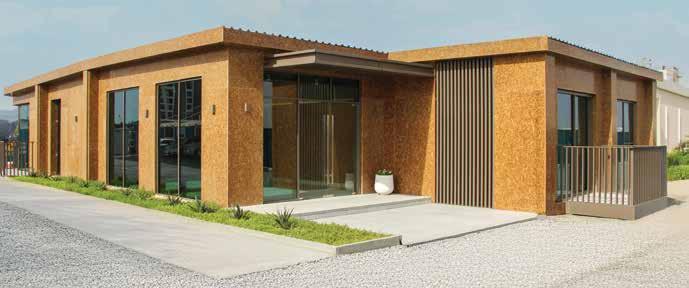

Our boards prevent CO2 emissions, all while being a carbonnegative material.”
Kamal Farah, Director, DesertBoard
ity) certificate of product conformity. This sustainability-driven approach not only prevents emissions but also creates a carbon-negative product, as evidenced by its environmental product declaration (EPD) certified by IMQ, which confirms PSB as a carbon sink even when accounting for transportation and manufacturing impacts.
“We’re not cutting down trees; we’re using what’s naturally available and turning it into a value-add product,” Kamal explains, emphasising the sustainability of sourcing locally and preventing emissions.
Applications and versatility
Talking about PSB’s versatility, Kamal explains that its uses extend across a wide range of applications — from construction to interior design, landscaping, events, exhibitions, and beyond. In the UAE, major developers like Aldar, Emaar, and Select Group have used PSB for fire-resistant doors in their developments, while projects like the Tarabot in the UAE and Al Musalla installations in Saudi Arabia — which won prestigious architectural awards — highlight its aesthetic and structural potential. The boards have been exported to India, Saudi Arabia, the UK, and Japan, and used in fire-rated doors, furniture, flooring, acoustic panels, and even prefabricated structures.
PSB’s high density and screw-holding capacity make it ideal for durable furniture, outperforming chipboard and MDF, which are prone to swelling and degradation. Its lightweight nature suits prefabricated construction, enabling faster building processes in congested urban areas or remote locations like the World Islands, where heavy materials like concrete are impractical.
PSB has been explored for non-construction uses as well, such as pallets and crates, supporting industries seeking to decarbonise their supply chains. The boards further proved their durability and adaptability during the 2024 Dubai flooding, with the Edge Morph
DesertBoard aims to catalyse a wood-construction industry, leveraging PSB as a platform for innovation in structural elements like I-beams and cross-laminated panels. Globally, the European Union’s deforestation regulations and Japan’s strict formaldehyde emission standards position PSB as a compliant, potentially high-demand alternative.
Rewards and recognition
DesertBoard is revolutionising sustainable architecture by embracing circular economy principles and reducing reliance on imported materials. The company has earned global recognition, including four wins at the IF Design Award in Hamburg, the KEZAD Appreciation Award in Abu Dhabi, and the Innovation Champion of the Year at Dubai’s Future of Architecture Summit.
Future innovations and global vision
DesertBoard is poised to expand its impact through innovative product development and global outreach. Within the next few years, the company plans to explore structural applications, such as manufacturing I-beams and prefabricated slats, which could establish new building codes for wood-based construction in the UAE. These advancements would enable PSB to compete with traditional materials in high-rise and large-scale projects, further decarbonising the built environment. DesertBoard envisions PSB as a model for countries with date palm cultivation, such as Saudi Arabia, Egypt, and Morocco, where similar biocircular economies could thrive. By promoting carbon accounting and Scope 3 emission reductions, DesertBoard aligns with emerging mandates in the GCC and Europe, where regulatory institutions increasingly demand lower carbon footprints. The material’s adaptability for DIY projects, transport, and furniture positions it as a versatile solution for a decarbonising world.
At its core, PSB embodies the principles of a biocircular economy. By upcycling palm fronds, DesertBoard prevents environmental harm while creating a value-added product. The boards’ carbon-negative profile, biodiversity-positive impact (no trees are cut), and formaldehyde-free composition make them a cornerstone of sustainable architecture. Unlike chipboard or MDF, which can degrade quickly in humid conditions, PSB offers superior strength and longevity, reducing waste and replacement costs. Its local production minimises transportation emissions, supporting the UAE’s economic and environmental goals.
“As global architecture further embraces mass timber and sustainable materials, PSB is well-positioned to lead, offering a scalable, replicable model for regions with abundant date palm resources. DesertBoard’s commitment to continuous R&D ensures that PSB will evolve, meeting the demands of a sustainability-driven construction industry. It’s the future of building,” Kamal concludes, encapsulating its transformative potential. n
By Mohamed Amer
In the rapidly evolving metropolitan centres of the GCC, the construction industry is undergoing a profound transformation. Governments across the region are setting ambitious environmental targets, and the industry is responding with groundbreaking innovations in materials, technology, and regulatory frameworks.
Innovating for net zero
For the GCC, achieving net-zero buildings is a growing priority that is key to reducing energy demand and ensuring long-term sustainability. With air conditioning accounting for a significant portion of energy use, the region is uniquely motivated to lead in passive cooling and renewable energy integration. A key challenge is demonstrating that sustainability and premium development can coexist an approach that is increasingly gaining traction.
As an example, concrete, responsible for a significant amount of global CO² emissions, has long been the backbone of GCC construction. However, innovative alternatives like Low Carbon Alternative Cement are gaining traction, particularly in the standardisation processes of various SDOs. This type of cement not only

reduces carbon emissions and energy consumption associated with cement production, but also opens the door for enhancing the curing process through concrete admixtures.
tech reshapes the build
The GCC is emerging as a leader in 3D printing technology, with the UAE already home to several additively manufactured buildings. The UAE’s 3D-printed office in Dubai, the first of its kind, showcases how this technology can reduce waste while enabling the region’s signature intricate designs.
Ambition, action align
A decisive shift is now underway, driven by Saudi Vision 2030 and the UAE’s Net Zero 2050 strategy. These national commitments are more than aspirational, they are actionable blueprints for a sustainable future.
In 2021, the UAE launched its Net Zero by 2050 Strategic
Initiative, making it the first nation in the Middle East to set a target of achieving net-zero emissions by 2050. Similarly, Saudi Arabia announced its commitment to achieving net-zero greenhouse gas emissions by 2060 during the first Saudi Green Initiative Forum in 2021. These initiatives are transforming economies and securing a sustainable future for generations to come.
Technological progress must be matched by a skilled workforce capable of implementing high-performance construction practices. Training and credentialing programmes, such as those offered by the International Code Council (ICC), have the potential to help professionals gain the necessary credentials. These programmes also equip them with the tools needed to effectively conduct their work on-site and apply codes, standards, and building safety regulations when designing structures and benchmarking to global practices. As market
Hansgrohe Group showcases Innovation and Award-Winning Design at KSA Stakeholder Gathering 2025
Hansgrohe Group made a significant impact at the KSA Stakeholder Gathering 2025, held at Hilton Riyadh Hotel & Residences, where industry leaders and partners experienced the brand’s latest innovations in bathroom design and technology. The showcase underscored Hansgrohe’s ongoing commitment to pushing boundaries in design, sustainability, and water efficiency, setting new standards within the sector.
Among the products showcased, including Hansgrohe Rainfinity and Pulsify hand showers, AXOR One faucets, and AXOR Citterio C line, the Hansgrohe Raindance Alive hand shower distinguished itself by receiving the prestigious iF Gold Award 2025 for its exceptional design and technical excellence. The Hydraloop system also drew significant attention, demonstrating Hansgrohe’s leadership in sustainable water management solutions for modern developments. These and other featured products underscored the brand’s dedication to combining functionality and luxury, meeting the evolving needs of the market.
Ben Reed, Key Account Manager of Global Projects at Hansgrohe Group commented: “At Hansgrohe, we see sustainability as a shared journey and a core value in everything we do.
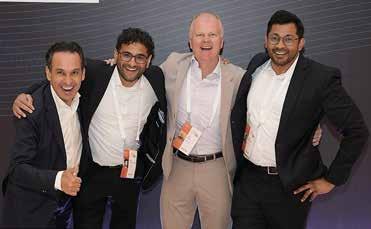

Our responsibility goes beyond simply offering water-saving products — we aim to inspire the entire industry by rethinking how resources are used, how products are made, and how we can enable better living for generations to come. Seeing the passion and commitment for sustainability from our partners in Saudi Arabia is truly energising, and we’re proud
demand shifts toward sustainable and innovative ways of construction, the workforce readiness will be key to driving long term progress in the operation and maintenance of buildings.
Holistic approach to change
The shift from high-profile sustainable projects to industry-wide adoption of higher baseline standards will define the next phase of progress in the GCC. The challenge lies in ensuring that future
growth is both economically robust and environmentally sustainable, which creates buildings that are not only visually iconic but also built to last in a low-carbon world. Leveraging the International Code Council (ICC) codes, standards and regulatory support tailored to the region’s specific challenges has helped governments and stakeholders create necessary linkages between ambitious sustainability commitments and practical implementation.
Translating ambitions into ac-
tion and investing in the workforce will allow the region to lead the world in creating a built environment as resilient as it is iconic.
—ThewriterisManaging Director,ICC(International CodeCouncil)MENA.TheICC istheleadingglobalsourceof model codes and standards and buildingsafetysolutions.The I-Codes,standardsandsolutions are trusted worldwide toensuresafe,affordableand sustainable communities and buildings.

Homegrown climate consultancy leads lowcarbon innovation in the UAE and beyond
Dubai-based advisory firm elementsix is a specialist carbon management firm offering turnkey solutions for emissions monitoring, reduction, and disclosure. The homegrown consultancy provides end-to-end solutions for emissions monitoring, reduction, and transparent reporting. Whether it’s calculating a carbon footprint or developing a full-fledged ESG strategy, ele mentsix walks clients through every phase of their decarboni sation journey with clarity, cred ibility, and commitment.
Distinctively, elementsix op erates on a low-carbon business model, underpinned by minimal travel, zero paper and plastic usage, and a firm-wide commit ment to renewable energy pro curement. This ethos not only reflects its environmental stew ardship but positions the firm as a preferred green supplier for ESG and carbon advisory ser vices across the region.
Moreover, elementsix plays an active role in the global carbon markets, helping clients offset emissions through high-quali ty environmental commodities. From designing and registering emission reduction projects un der leading international stan dards to brokering Certified Emission Reductions (CERs), Verified Carbon Units (VCUs), and International Renewable Energy Certificates (IRECs), the firm ensures clients can meet their sustainability goals with confidence and integrity.
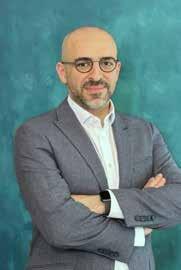



to support the Kingdom’s ambitious vision for a greener, more innovative future.”
With a strong presence in prestigious projects and ongoing investments in innovation, Hansgrohe Group continues to solidify its reputation as a trusted partner for hospitality, real estate, and large-scale developments across Saudi Arabia and the Middle East. n
Founded by industry veterans Amer Arafat and Dahlia Hal eem, the firm combines regional insight with international best practice, delivering measurable impact through science-based solutions. Their UAE-grown ex pertise, especially in the region’s evolving carbon landscape, is rare and valuable.
As signatories to the United Nations Global Compact, ele mentsix stands at the forefront of the climate transition, walk ing the talk not just for clients, but in its own operations, driv ing forward the sustainability agenda with integrity, innova tion and technical rigour.
